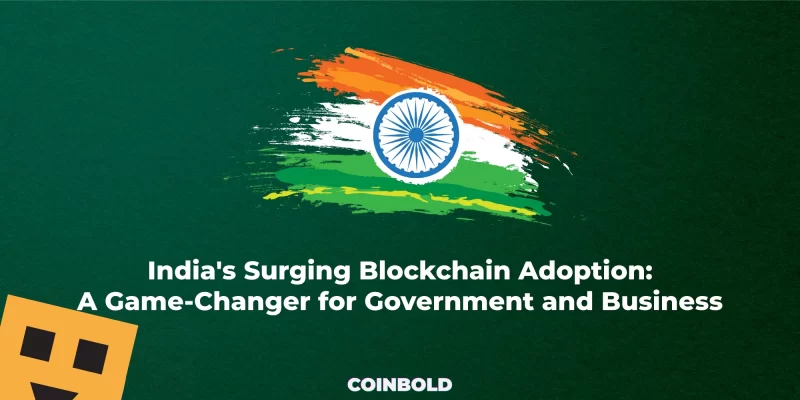In the rapidly evolving landscape of technology, numerous local and state governments in India are embracing blockchain innovation. Blockchain technology, once seen as a mere buzzword, is now becoming a cornerstone for modernizing government operations, bolstering decentralization, ensuring immutability, and fostering transparency. This article delves into the realm of blockchain adoption in India, uncovering the profound impact it has on government processes and the business ecosystem.
The Rising Tide of Blockchain Adoption
India’s journey towards blockchain adoption is akin to a phoenix rising from the ashes. What was once considered an experimental technology is now steering government initiatives towards digital transformation. Blockchain’s ability to provide a tamper-proof ledger has piqued the interest of government organizations seeking to enhance their paper-based processes.
Ankur Rakhi Sinha, the co-founder and CEO of Airchains, elaborated on India’s blockchain adoption, emphasizing its multifaceted benefits for enterprises and institutions. “The driving force behind India’s blockchain adoption is the multitude of benefits it offers to enterprises and institutions. Within their ecosystems, organizations recognize the immense benefits of incorporating blockchain technology,” he explained.
Building Trust and Transparency
Transparency, traceability, and trust-building are critical challenges that blockchain addresses across various levels. These factors have ignited widespread interest and accelerated the adoption of blockchain in India. With over 56% of Indian businesses expressing a keen interest in adopting blockchain technology, India has emerged as one of the world’s fastest-growing blockchain markets. Additionally, India boasts a staggering 10 million-strong developer base, catching the eye of leading Web3 companies eager to tap into this vast talent pool for Web3 innovation on a global scale.
Ankur Sinha highlighted a recent milestone—the collaboration between Airchains and the New Town Kolkata Development Authority. This partnership serves as a tangible example of blockchain adoption in India, showcasing the technology’s real-world applications. Furthermore, he noted that many government agencies in India are actively seeking partnerships with blockchain solutions providers, signifying a shift towards embracing modern technology.
Blockchain’s Role in India’s Growth
Ankur Sinha stressed the pivotal role of blockchain in India’s overall growth trajectory. “As blockchain adoption continues to expand, it is expected to drive innovation, foster economic development, and create new opportunities across various sectors,” he emphasized. The numbers speak for themselves: between 2021 and 2022, India witnessed the birth of over 450 Web startups, coupled with over $1.5 billion in investments—a testament to the flourishing ecosystem fueled by blockchain and emerging technologies.
In conclusion, India’s blockchain adoption is no longer a speculative venture but a transformative force. It is redefining government processes, boosting transparency, and catalyzing economic development. As India continues on this remarkable journey, the blockchain revolution shows no signs of slowing down, promising a future where trust and innovation go hand in hand.


